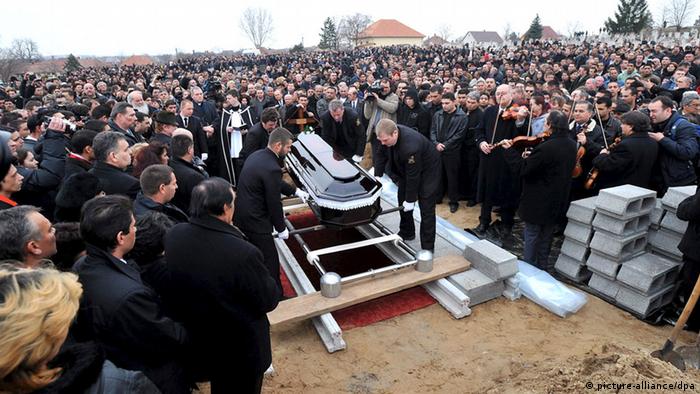By Ben Kopp
Impunity Watch Reporter, Europe
BRUSSELS, European Union – Self-appointed Roma king Florin Cioaba’s funeral held thousands of people in the Romanian city of Sibiu less than a week after his death by heart attack on 18 August 2013. Throughout Europe, the Roma people continued to seek basic human rights, including shelter and safety.

In 1997, Cioaba became the self-proclaimed Roma king following the death of his father, who previously held the title. Popular among the Roma community, Cioaba supported modernization and education.
At Cioaba’s death, an estimated 10 million Roma people lived across Europe, with about two million struggling with prejudice, poverty, and illiteracy in Romania. In addition to being one of Europe’s oldest minorities, the Council of Europe has declared that the Roma are also Europe’s most discriminated against minority.
“We have seen a deeply worrying trend over the past year with entrenched discrimination against Roma reaching new heights. This is a fundamental issue that the Czech authorities can’t ignore,” said John Dalhuisen, Europe and Central Asia Program Director for Amnesty International.
On 27 August 2013, French authorities forced the eviction of 150 Roma people in a manner that Amnesty International claims is against international laws requiring “appropriate procedural protections”, “adequate alternative accommodation”, and compensation for relocated residents.
Since the open of 2013, the Czech Republic has experienced a surge of neo-Nazi activity, including anti-Roma marches and demonstrations. “The marches [are] on the increase, and people are afraid,” said David Tiser, the director of a Prague NGO. “These are not just marches by extremists. Regular citizens are joining in as well. And this is what is dangerous. This is why the foreign media are interested.”
On 24 August 2013, at least 1500 people marched through several Czech communities. In some locations, police arrested demonstrators and confiscated wooden stakes, baseball bats, and machetes. To instill fear in the Roma community, many marchers shouted, “Gypsies to the gas chambers.”
In Hungary, human rights activists and lawyers convinced officials recently to re-open a 2008-2009 series of murders against the Roma community. Throughout both years, right-wing extremists carried out nine arson attacks that resulted in six deaths and fifty-five injuries. At least one suspect remains free. Particularly, authorities will place focus on initial “failures and potential wrongdoing” by investigators. While police investigators overlooked serious suspect possibilities and may have been involved in evidence destruction, Hungarian prosecutors are also looking to military personnel who may have helped facilitate the attacks.
Every ethnicity deserves the dignity and respect granted under international human rights law, and once provided to the Roma, Cioaba’s hopes for greater modernization and education will become reality.
For further information, please see:
Deutsche Welle – Czech Neo-Nazi Marches Target Roma – August 30, 2013
Amnesty International – French Authorities Forcibly Evict 150 People, Including 60 Children – August 27, 2013
Deutsche Welle – New Investigations, Compensation for Roma Murders in Hungary – August 27, 2013
BBC News – Czech Anti-Roma Protests End in Arrests – August 24, 2013
AFP – Romania’s ‘King of Gypsies’ Buried – August 23, 2013
Reuters – Thousands Gather in Romania for Roma King’s Funeral– August 23, 2013